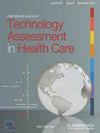OP24 中国抑郁人群和抑郁症患者对抗抑郁药物的偏好:最佳-最差比例调查
IF 3.1
4区 医学
Q2 HEALTH CARE SCIENCES & SERVICES
International Journal of Technology Assessment in Health Care
Pub Date : 2023-12-14
DOI:10.1017/s0266462323000697
引用次数: 0
摘要
引言 抗抑郁药物是治疗抑郁症的主要方法之一,以往的证据表明,考虑患者的偏好可以提高他们对药物治疗的依从性。因此,本研究旨在评估中国抑郁症患者和抑郁症易感人群对抗抑郁药物的偏好。方法对抑郁症患者和抑郁症易感人群进行了一项在线调查,调查内容包括最佳-最差比例选择。平衡独立区组设计为每位受试者提供了 13 个选择任务,每个选择集由 13 种抗抑郁药物属性中的 4 种备选药物组成。结果分析样本包括 210 名参与者,其中 49 人曾患抑郁症,161 人易患抑郁症。两组参与者都偏好肝脏或肾脏损伤、头痛或头晕以及复发风险较低的药物。两组在自付费用和用药时间方面存在明显差异。我们的研究揭示了中国患者在抗抑郁药物选择方面的偏好。医疗决策者应在治疗决策过程中考虑并讨论患者的偏好,以提高患者对药物治疗的依从性和满意度,最终改善患者的治疗效果。本文章由计算机程序翻译,如有差异,请以英文原文为准。
OP24 Preferences Of Depressed And Depression-Prone Groups With Regard To Antidepressants In China: A Best-Worst Scaling Survey
IntroductionAntidepressants are one of the main treatment approaches for depression, and previous evidence suggests that consideration of patient preferences can improve their adherence to medication regimens. The objective was, therefore, to evaluate the preferences of depressed and depression-prone groups in China with respect to antidepressant medications.MethodsAn online survey with best-worst scaling choices was administered in depressed and depression-prone patients. The balanced independent block design generated 13 choice task profiles for each participant to answer, with each choice set consisting of four alternatives out of 13 antidepressant-specific attributes. Count analysis and a conditional logit model were used to estimate the relative importance of the 13 attributes and preference heterogeneity.ResultsThe analytical sample included 210 participants, comprising 49 individuals who had previous experience with depression and 161 who were depression prone. Participants in both groups preferred medications with a low risk of liver or kidney damage, headache or dizziness, and recurrence. There were significant differences in both groups regarding out-of-pocket costs and duration of medication. The K-means clustering further proved preference heterogeneity among the patients.ConclusionsOur study revealed patient preferences for antidepressant medication choices in China. Healthcare decision makers should consider and discuss patient preferences in the treatment decision-making process to improve patient adherence to and satisfaction with medications, and to ultimately improve patient outcomes.
求助全文
通过发布文献求助,成功后即可免费获取论文全文。
去求助
来源期刊

International Journal of Technology Assessment in Health Care
医学-公共卫生、环境卫生与职业卫生
CiteScore
4.40
自引率
15.60%
发文量
116
审稿时长
6-12 weeks
期刊介绍:
International Journal of Technology Assessment in Health Care serves as a forum for the wide range of health policy makers and professionals interested in the economic, social, ethical, medical and public health implications of health technology. It covers the development, evaluation, diffusion and use of health technology, as well as its impact on the organization and management of health care systems and public health. In addition to general essays and research reports, regular columns on technology assessment reports and thematic sections are published.
 求助内容:
求助内容: 应助结果提醒方式:
应助结果提醒方式:


